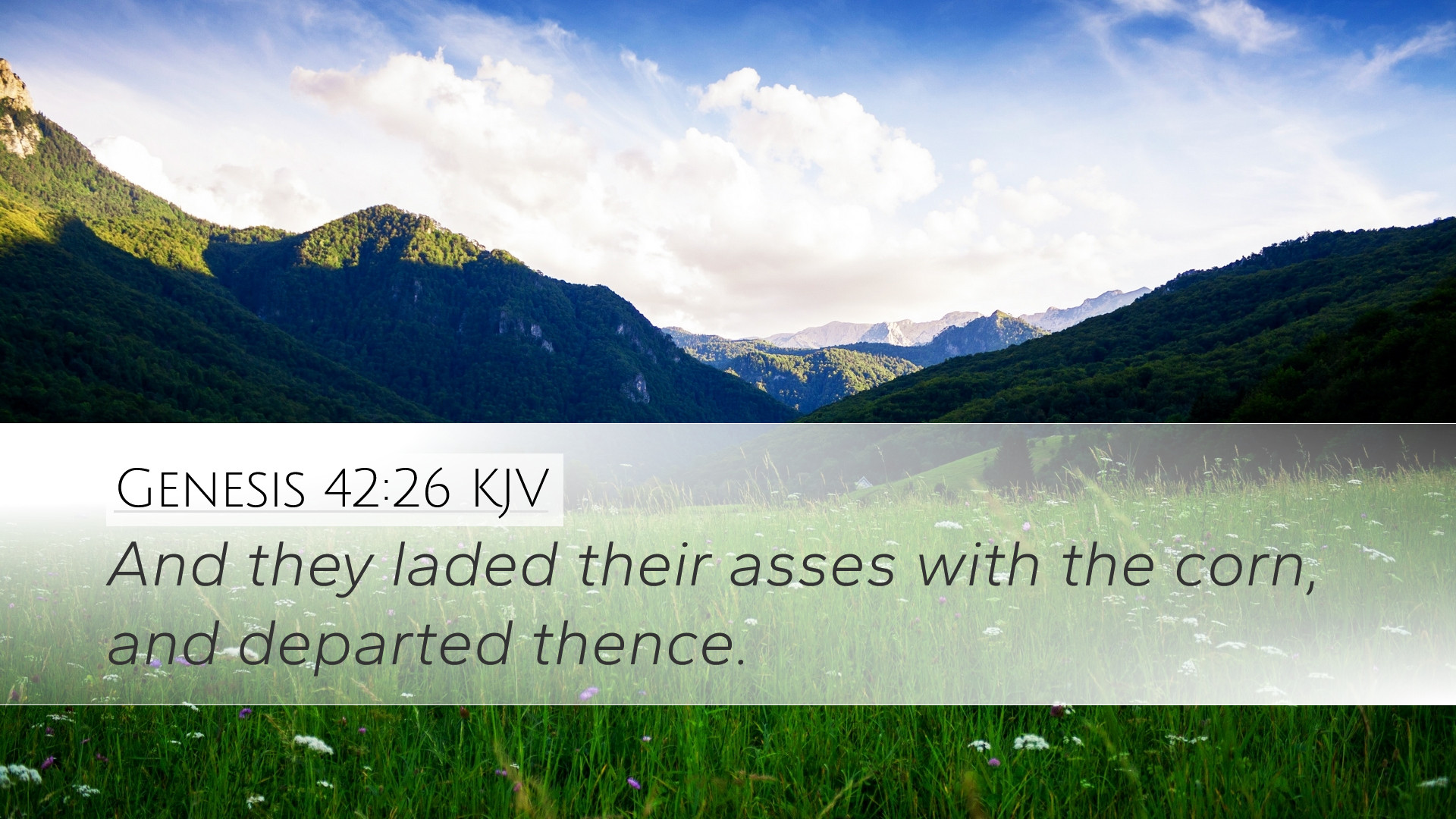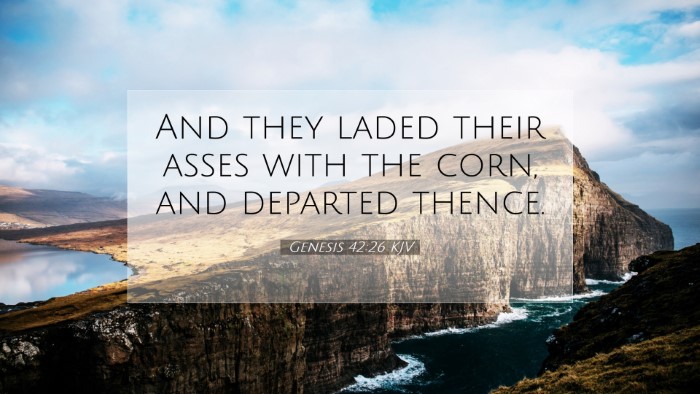Commentary on Genesis 42:26
Verse Analysis: Genesis 42:26 states, “And they laded their asses with the corn, and departed thence.” This verse occurs within the broader context of Joseph's brothers traveling to Egypt during a time of famine, where Joseph, unbeknownst to them, has risen to power. This moment signifies not only the practical aspects of their journey but also the unfolding of God's providential plans.
Contextual Background
The narrative around Genesis 42 serves as a pivotal point in the history of Israel. The testing of Joseph's brothers by their estranged sibling encapsulates themes of reconciliation, repentance, and divine providence. Their return to Canaan with grain symbolizes God’s provision amidst hardship.
Thematic Insights
- Divine Providence: The loading of the asses with corn reflects God's provision. Despite the brothers’ past misdeeds against Joseph, God orchestrates events for their benefit, illustrating His ability to work all things together for good (Romans 8:28).
- Human Agency: The actions of the brothers are notable not only in their necessity but also in their obedience. Their willingness to embark on this journey to procure food highlights human initiative in conjunction with divine providence.
- Significance of Bread: Grain is representative of sustenance, both physically and spiritually. It serves as a metaphor for Christ as the Bread of Life (John 6:35), hinting at deeper spiritual truths revealed in the later texts of the New Testament.
Insights from Public Domain Commentaries
Matthew Henry
Henry emphasizes that the act of loading their asses with corn symbolizes both the mercy and providence of God in their lives. He points out that despite their previous sins, God shows favor by providing for their needs. He notes that this moment also serves as a reminder of God’s longstanding covenant with Abraham, Isaac, and Jacob – a promise involving both physical sustenance and spiritual blessing.
Albert Barnes
Barnes presents a detailed reflection on the logistics and significance of their journey. He observes the brothers' return symbolizes more than just physical stock – it represents a significant turning point in their lives, indicating a movement towards reconciliation and repentance. Barnes asserts that the journey to fetch food ultimately would lead them back to their brother Joseph, illustrating God's sovereign plan in bringing the estranged family together once more.
Adam Clarke
Clarke provides a unique perspective on the practical implications of this verse. He discusses the meticulous instructions given to the brothers, which reflects a deeper spiritual intent. Clarke suggests that their labor in loading the corn represents the struggles and efforts taken in faith, pointing to the weight of their past sins and the burdens they carry. He fervently highlights the divine hand orchestrating their lives, drawing attention to God’s grace through their hardship.
Practical Applications
- Faith in Adversity: Just as Joseph’s brothers faced their fears in returning to Egypt, pastors and students of the Word are encouraged to confront their own struggles, trusting in God’s provision.
- Repentance and Reconciliation: This text reminds us that true repentance may require the confronting of past failures, leading to restoration in relationships, as seen in the eventual reconciliation of Joseph and his brothers.
- Divine Provision: The grain symbolizes the necessary sustenance God provides, emphasizing the importance of relying on Him for our physical and spiritual needs.
Conclusion
Genesis 42:26 serves as a profound reminder of the complexities of human experience underpinned by divine providence. Through the loading of their asses with corn, the narrative unfolds themes of restoration, provision, and the eventual encounter that would change the course of many lives. In this exploration, we see the intricate weave of God’s plans, showcasing His faithfulness amidst human frailty.


